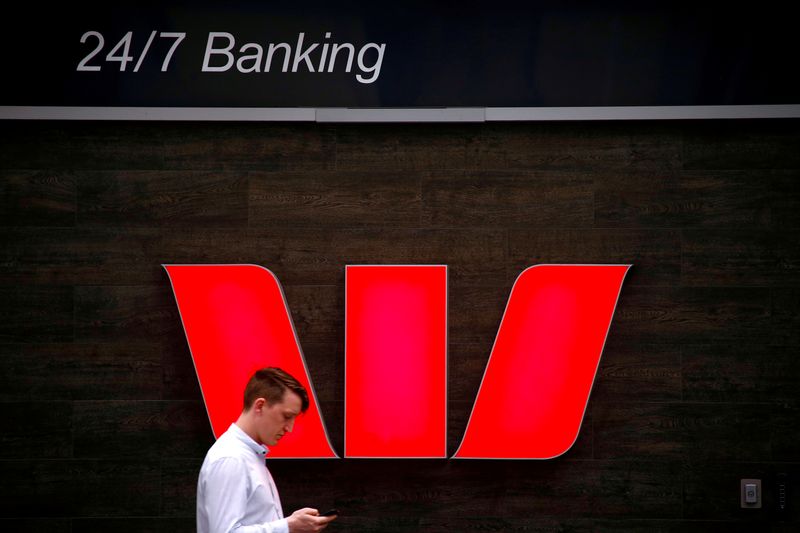By Harshita Swaminathan
(Reuters) -Australia's No. 3 lender Westpac Banking (NYSE:WBK) Corp on Monday reported a drop in annual earnings, hit by a charge on the sale of its life insurance unit, and raised cost guidance as it flagged lower home prices and higher unemployment into 2023.
Westpac revised its target for costs incurred to A$8.6 billion ($5.52 billion) by fiscal 2024 from a prior target of A$8 billion, citing wage increases from a tight labour market and continued regulatory costs.
Westpac's cost target excludes its specialist business and some other items. Analysts at Citi said this implies a total cost base of A$9.2 billion for fiscal year 2024, which consensus estimates have already priced in.
"This provides a clear point of differentiation from recent peer results, where revenue upgrades were mitigated by cost revisions," analysts at Citi said.
Shares of the lender fell over 3% to A$23.38, while the broader market was up 0.5%.
However, Westpac has seen a 19% reduction in annual operating expenses during its 2022 fiscal year, benefiting from lower asset writedowns and staff expenses.
The bank's cash earnings came in 1.4% lower at A$5.28 billion for the year ended Sept. 30, marginally beating a Morgan Stanley (NYSE:MS) estimate of A$5.23 billion. It declared a final dividend of 64 Australian cents per share.
The result met most analyst forecasts but shows Australia's banks at a precipice: just as they start to benefit from rising interest rates, which widen their profit margins, they are bracing for a downturn in their core business of home lending.
While Westpac's lending margins in the second half recovered slightly from the first half on higher interest rates, full-year margins were still down 13 basis points from last year.

In contrast, smaller rival Australia and New Zealand Banking Group (ANZ) saw only a 1-basis-point contraction in full-year margins.
($1 = 1.5571 Australian dollars)